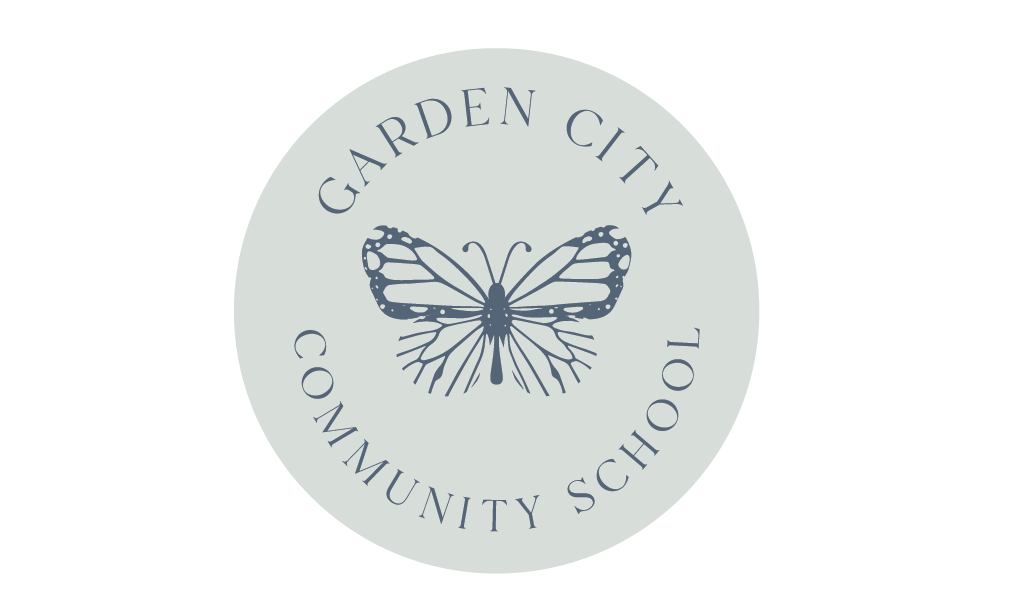
“Education is an atmosphere, a discipline, a life."
- Charlotte Mason
Who We Are
Our Mission is to partner with families in the formation of the whole child by offering an abundant "feast" of education that fosters the child's natural curiosity and wonder, and awakens their minds and hearts to the truth, beauty, and goodness all around them.
What is God's vision for his children? Wholeness and holiness. Our vision for GCCS is the same. We long for children, families, and communities to be formed by the person of Jesus in such a way that we flourish – whole and holy.
We Value…
Truth. Beauty. Personhood. Community. Formation.
What sets Garden City apart?
Education for the Whole Child
We believe that children are whole, complete people – capable, curious, and eager to learn. Our mission is to foster that natural curiosity and wonder, to introduce "living" ideas that inspire the child to ask questions and seek answers. At Garden City Community School, children are not simply taught what to learn, but how to learn. And, best of all, they will delight in learning!
Smaller Classes
Our unique educational approach requires smaller class sizes, benefitting our students and teachers alike. Smaller classes allow our teachers to get to know and invest in each student, and our students thrive in this atmosphere of relational learning.
Partnership with Families
At Garden City Community School, we endeavor to walk alongside and partner with families in order to see our students grow and flourish. Our teachers are committed to praying with and for families, maintaining open communication, and recommending additional resources for parents and caregivers who desire to learn along with their children.
Community
At Garden City, we are committed to establishing a school culture that is Christ-centered, grace-filled, and relationally-rich, where students and their families feel welcome, safe, and valued.
Hybrid School Model
Being a hybrid model school allows us to have a shorter week, which provides more opportunities for families to enjoy time learning together. Grades 1st - 6th teachers will provide suggestions and instructions for enrichment excursions and supplemental learning activities, in hopes that the family will enter in and participate in the education of the child in a meaningful way.
Our school week is structured as follows:
Kindergarten - 8th Grade
Monday - Thursday, 9 A.M. to 2 P.M.
*Enrichment “excursions” (field trips) are offered once a month on Fridays.
“We all have need to be trained to see, and to have our eyes opened before we can take in the joy that is meant for us in this beautiful life.”
- Charlotte Mason
A Different Approach to Education
Our educational approach is based on the philosophy of a British educator and writer named Charlotte Mason. Mason’s philosophy of education is founded upon the belief that “children are born persons” - that each child has intrinsic value, inherent dignity, and God-given worth. She also believed that “education is an atmosphere, a discipline, a life.” According to Mason’s philosophy, the atmosphere of a school should resemble that of a home, in the sense that a school should be a safe environment in which children are free to play, create, explore, and wonder. Mason also believed that education is the discipline of habits - habits like attention, excellence, and observation - and that the child is capable of learning these habits from an early age. And, finally, Charlotte Mason believed that education is a “life” sustained and nourished by ideas.
What does this philosophy look like in practice?
Personhood
Children are whole, complete people created in the image of God, valuable and precious in His eyes. Children are not “blank slates” to be written upon or vessels to be filled; rather, it is the role of the educator to spread before them an abundant “feast” of ideas.
Living Books
Charlotte Mason believed in using “living books”, as opposed to textbooks filled with lists of facts and information. Living books make ideas come “alive” for the child, inspiring and engaging the child’s heart, soul, and mind.
Narration
Simply put, narration is a “telling back”, an opportunity for the child to engage with and internalize the ideas they encounter. Young children begin with oral narration and gradually transition to written narration as they grow in both composition and fine motor skills.
Short Lessons
Charlotte Mason believed in keeping lessons short, especially for young children, in order to gently and gradually train children in the habit of attention.
Nature Study
Mason believed that a great deal of time should be spent outdoors, observing and studying Nature. The benefits of Nature Study for the child are not limited to learning about the wonders of Creation and the natural world. In addition to promoting behavioral and mental wellness, Nature Study also trains children in the habits of attention and observation, both of which will serve them in the classroom and far beyond!
“A Large Room”
Charlotte Mason believed that children should be exposed to a broad curriculum through a wide variety of subjects, and that children should be free to explore, discover, and connect ideas in order that they might become joyful, lifelong learners.








